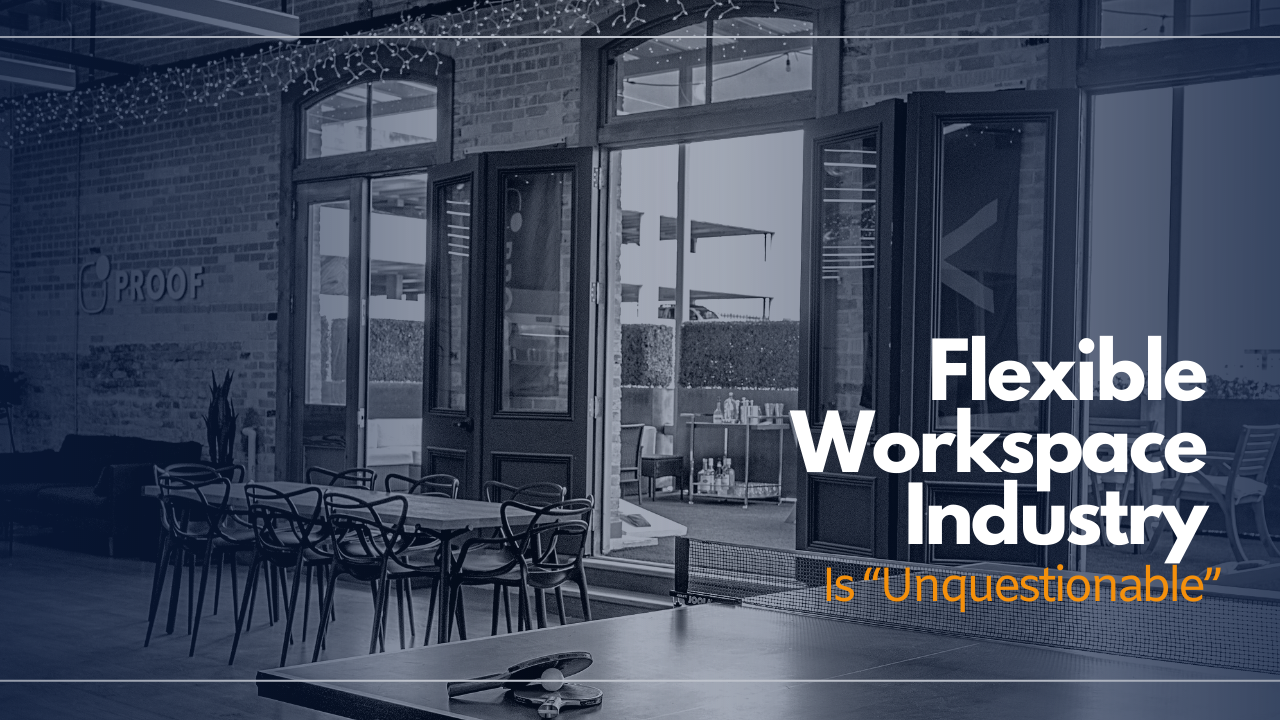- At the Work Spaces Day Conference in Barcelona, experts agreed that the coworking industry is not only here to stay, but it will continue to grow.
- Social change and a “paradigm shift” in the way people work is driving demand for flexible space across Europe.
- Hybrid workspace operators — those that are both property owners and workspace operators — are seeing the most activity and are expected to grow across Europe.
During last week’s Work Spaces Day Conference in Barcelona, there was one topic that most attendees and presenters agreed on: the coworking industry is not only here to stay, but it will continue to grow.
Ramiro Rodríguez, Associate Director of Research & Insight at Cushman & Wakefield Spain presented findings from the report “Spain’s Flexible Workspace Industry 2019”. His presentation started with the statement that “the potential of the flexible workspace industry is unquestionable.”
Philippe Jiménez, Country Manager Spain for IWG; Óscar García Toledo, Founder & CEO of FIRST WORKPLACES; Sergi Tarragona, Founder of Cloudworks; and Jesse Derkx, Head of Sales at ONE COWORK agreed with the above claim during a panel.
Tarragona stated that the industry will continue to grow because there has been a “paradigm shift in the way people work.” Flexible workspace is a fundamental part of this shift. Jiménez for his part, believes that one of the main growth drivers of the industry is the growth of the knowledge-based economy. “Companies with a knowledge-based workforce need space that can be tailored to specific needs and demands.”
García Toledo believes that the flexible workspace industry’s success is due to social change. “Society is changing”, it’s not just about the way people work, but also how they live. “Technology is evolving faster than ever, and this means that we all need to be on our toes; flexible space enables companies to be resilient and able to adapt to any upcoming social and technological changes.”
In Spain, Cushman & Wakefield found that hybrid workspace operators — operators that are both property owners and workspace operators — are the ones getting the most activity. According to the report, “these types of operators are expected to grow in Spain and across Europe.”
Key Findings from the Cushman & Wakefield Spain Report 2019
- Spain is experiencing high levels of occupancy, and these levels are expected to increase in the short-term.
- Operators are increasingly focusing on the end-user experience.
- Flexible workspace operators are increasingly implementing IoT and other technologies to collect utilization data.
- Large companies are adopting flexible workspace as it enables them to use less square footage per employee, utilizing social and community areas for workers.
- Flexible workspaces represent 2% of Barcelona’s total office stock. This number is expected to reach 3% or 4% by 2022.
- So far, the absorption of flexible space this year (2019) is 602,778.98 square feet (56,000 square meters) in Madrid and 667,362.45 square feet (62,000 square meters) in Barcelona.
- Most flexible workspace operators in Spain expect their prices to increase in the coming years.
- The Spanish flexible workspace market is made up mostly of small center operators, with locations of under 32,291.73 square feet (3,000 square meters).
- Cushman & Wakefield expects the flexible workspace industry to grow outside of capital cities, into tier 2 cities in the near future.
Corporate Flexible Workspace Occupiers in Spain
One issue that stood out in the panel moderated by Javier Bernades was the statement that, for the most part, corporates (in Spain) “are starting to use flexible space more out of necessity than conviction that it’s the way of the future.”
This is particularly concerning, especially as, in García Toledo’s words, “corporates are making the flexible workspace business more lucrative and viable”. The good news is that, so far, “once large companies try flexible workspace, they stay.”
More importantly, Derkx made the observation that flexibility is the way of the future. “Companies today and in the future will need to be flexible, and that’s our main value proposition.” Even if large enterprises are not yet convinced of the value of flexible workspace solutions, the reality is that in their efforts to attract and retain talent, flexible workspace is a valuable tool and resource.
Additional Insights from the Panel
- To open in Tier II cities, flexible workspace operators should partner with someone in the local community as, “they are the ones that best know what the community likes and needs”.
- An effective strategy for this could be to offer franchise options.
- Management contracts with landlords and property owners are an effective way to mitigate risk and reduce costs.
- Landlords and property owners in Spain are increasingly more willing to work with flexible workspace operators.
- One of the greatest benefits of partnering with landlords and property owners is that they will likely help you attract clients; they, as much as you, will be invested in the project and its success.















